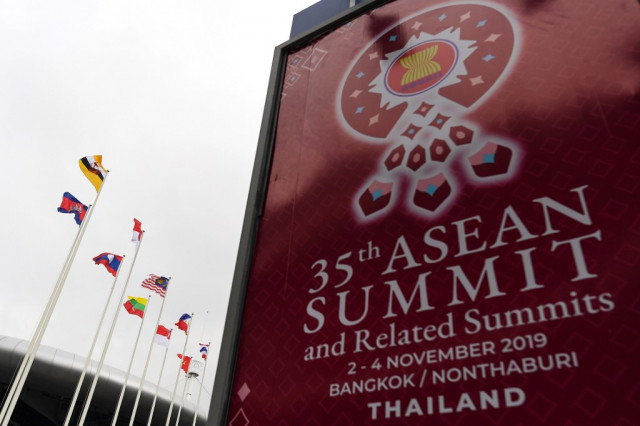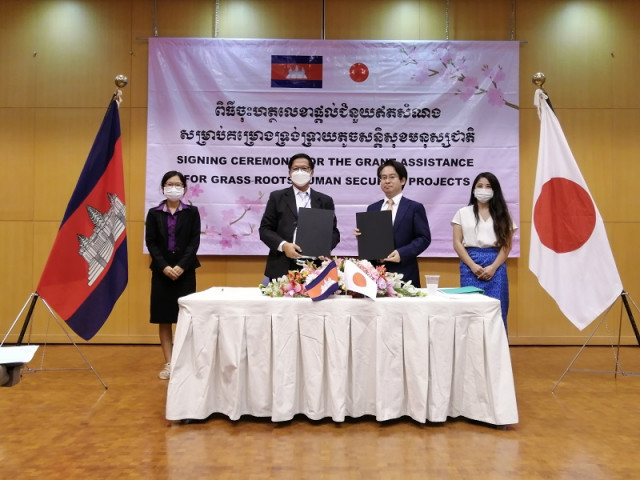Opinion: ASEAN Must Adapt to Great Power Dominance for Survival

- Visal Chourn
- December 23, 2020 3:26 AM
The regional bloc must break free from the competing superpowers and further develop relations with middle powers in order to provide checks and balances amid the ongoing rivalry between the US and China.
The Association of Southeast Asian Nations (ASEAN) is once again in the forefront of renewed strategic and security importance within the face of great-power rivalry. Comprised of vastly different religious and cultural views as well as political and economic systems, ASEAN is one of the most complex and diversified blocs in the world. Since its formation in 1967, it has gained surprising political success in laying the grounds for peace, prosperity and security in the region by beating many odds in world politics.
It has instated the balance of power and effectively provided a platform for discussions rather than as a tool for great power dominance or a springboard to enhance great powers’ unilateral military might. The recent rivalry between the United States and China represents a contemporary microcosm of ASEAN’s functionality.
ASEAN Minilateralism
East Asia has suffered from dual hierarchy syndrome for some time now, relying on the United States for security and relying on China for trade and investments. In order to combat such a complex predicament, ASEAN must consider smaller, informal coalitions that aim to exclude the US and China in discussions and drawing nearer to middle powers who hold the leverage to balance the power in the region as the US and China find themselves competing for loyalties of middle states. In theory, minilateralism is actually multilateralism on a smaller, easy to break-down scale.
It is appealing to Southeast-Asia, in particular, because of its ease of conducting and coordinating discussion on certain issues within the geographically defined space and offers an effective alternative to consensus-building decision-making model, which has—at times—shaken the political elites on certain sensitive issues. Furthermore, it offers the flexibility, efficiency, and possible opportunities to experiment with many policy recommendations.
But it is worth noting that minilateral diplomacy must be conducted in line with the ASEAN community blueprints, and the principles of ASEAN unity and centrality.
Countering the Logic of Primacy
For starters, hegemony and primacy are two separate factors. And while US exceptionalism is an admirable thing, US primacy in international relations is dangerous in the face of a multipolar or some may argue, bipolar world. The US’ grand strategy has sought after three key objectives since Cold War: “security, prosperity, and domestic liberty.” In creating such a strategy, the US has been able to reap its rewards in Asia for the past 40 years and has stood at a commendable position in the international system to set norms of behavior, determine when norms were breached, and taking actions to enforce them.
In a sense, President Donald Trump has reversed almost all of what American grand strategy stands for by cozying up with dictators and autocrats, providing a loophole for China to step in as an Asian hegemonic power, and this in and of itself is dangerous for the world.
On the other hand, China also faces the great threat of retaliation from middle states such as Japan, Australia and India, as well as smaller ones such as Taiwan and South Korea who stand ready to counter acts of hostility should there be any alarming escalation of security threats in the maritime waters.
The People’s Liberation Army does have the largest ground forces military in Asia, but its naval capacities are still rivaled to that of Japan and Australia, let alone the nuclear arsenal of India. Japan could develop its own nuclear weaponry very quickly, similarly to Taiwan, South Korea and Australia, which have all had nuclear programs in the past and possess the technical know-how to restart them. Overall, the hurdles outnumber greatly the benefits of China’s bid to become a hegemony greatly.
We are returning to a time of great power politics now most certainly, and to much of the realists’ delight, this forces many states and organizations, especially ASEAN, to re-think strategies and reset priorities. In the backdrop of the histories that laid the foundations of an international order that is based on America’s liberal approach, there is a growing debate whether US primacy has now come to an end on all fronts: military, economic and soft.
With the rise of transnational actors, non-state actors, and emerging great powers such as China, only time will tell whether these changes will boost global security and shared global prosperity are yet to be seen.
Visal Chourn is a sub-editor at the ASEAN-Australia Strategic Youth Partnership.















